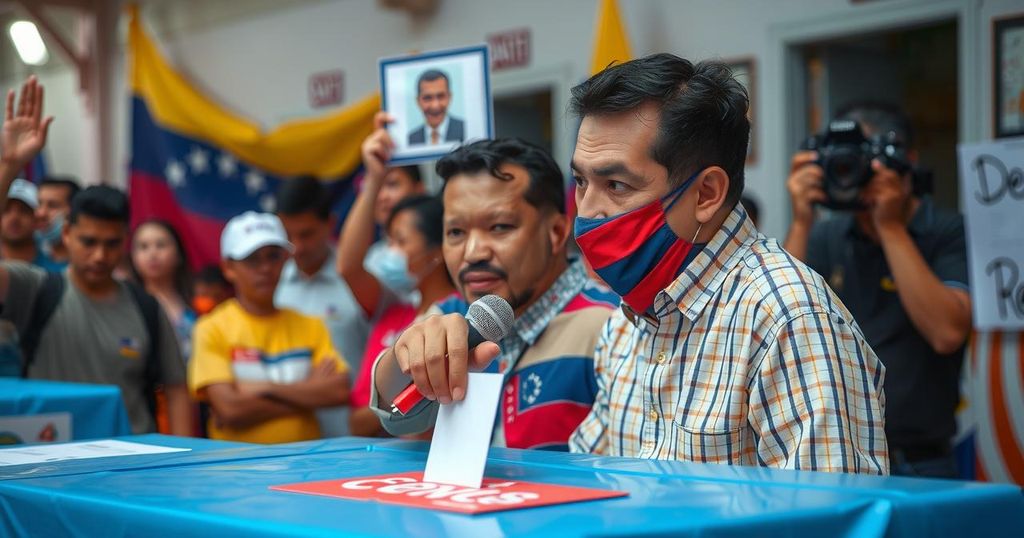Nicolás Maduro was sworn in as President of Venezuela for the 2025-2031 term amid allegations of electoral fraud, with the opposition asserting that Edmundo González Urrutia won the July elections. Maduro emphasized his commitment to constitutional mandates during the ceremony, which was attended by key government figures.
On January 10, 2025, Nicolás Maduro was formally sworn in as President of Venezuela for another term spanning from 2025 to 2031, during a ceremony officiated by the National Assembly, which is under his party’s control. Maduro asserted his commitment to fulfilling constitutional mandates, proclaiming the start of a new era of peace and prosperity. The inauguration featured the original constitution signed by the late Hugo Chávez, attending dignitaries including the attorney general and the National Electoral Council president.
The political climate in Venezuela has been tumultuous, with ongoing claims of electoral fraud surrounding the recent presidential elections held on July 28, 2024. The ruling party, led by Maduro, proclaimed his re-election, amid assertions from the opposition that Edmundo González Urrutia actually won the election. This conflict has fueled continued unrest and allegations of manipulation within the electoral process. Historically, tensions between the government and opposition have persisted, characterized by accusations of undemocratic practices and electoral injustices, contributing to the country’s ongoing crisis.
In summary, Nicolás Maduro’s inauguration as President for a new term occurs amidst serious allegations of election fraud from the opposition, which continues to assert the legitimacy of Edmundo González Urrutia as the rightful winner. Despite the claims, Maduro’s government maintains control, further deepening the political divide within Venezuela. As the situation evolves, the international community closely observes the implications of this political contest on Venezuelan democracy and stability.
Original Source: efe.com






